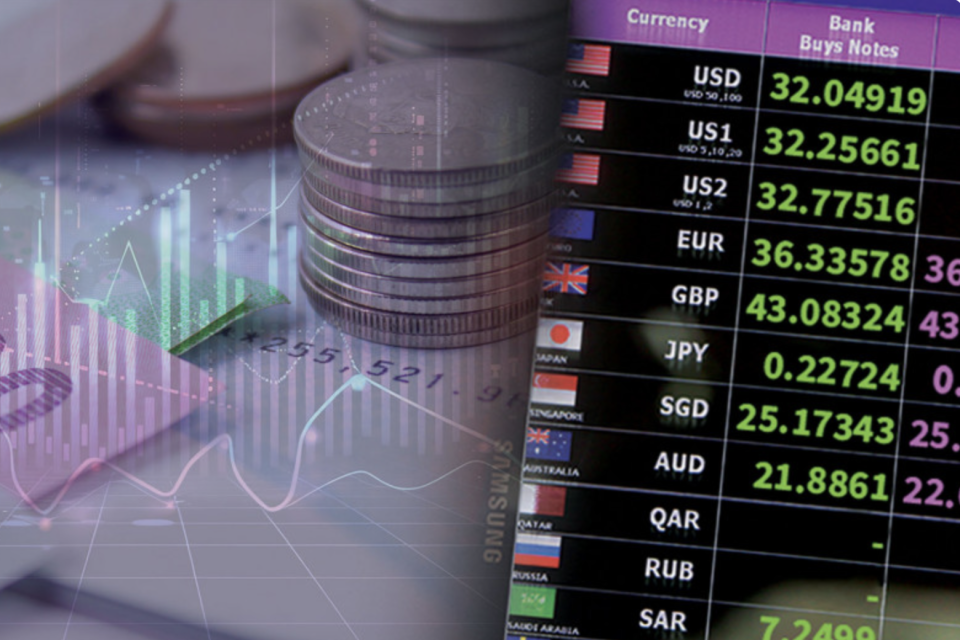Thailand’s economy is grappling with persistent challenges attributed to long-standing structural issues, such as an aging population that contributes to labor shortages and market constraints.
The country’s business competitiveness has been hindered by rigid economic policies resulting in inadequate investment and limited access to credit. This vulnerability is highlighted by a strengthening baht index, a credit contraction, and elevated commercial bank interest rates.
The situation has become more critical with the tariff policies initiated by former US President Donald Trump. He imposed a minimum 10% import tax on global goods and announced “reciprocal tariffs” affecting numerous countries.
Asian nations with significant trade surpluses with the US have been particularly impacted, with Thailand facing tariffs as high as 36%, putting significant strain on its export sector.
While these tariffs have been postponed until early July (except for those on China), the base rate of 10% remains in effect. Delays in negotiations with Washington, pending Thailand’s resolution of certain US-raised “issues,” send troubling signals.
Recent developments, however, indicate a possible easing of trade tensions. China is contemplating the suspension of its 125% tariff on specific US imports, echoing actions taken by the US, which has recently excluded electronics from its 145% tariff on Chinese goods.
These reciprocal adjustments illustrate the intricate economic interdependence between the world’s two largest economies, with critical sectors experiencing significant slowdowns as trade conflicts escalate.
For Thailand, the repercussions are expected to become evident in the latter half of the year, especially in the third and fourth quarters, when economic growth might decelerate to only 0.4% and 0.2%, respectively.
EXPORT DECLINE
Exports, which surged by over 10% in the first quarter, may decrease by double digits in the fourth quarter, leading to an estimated annual contraction of around 3%. The hardest-hit sectors are predicted to be computers and components, machinery, agriculture, gemstones, and rubber, with difficulties rapidly affecting other industries.
The global economy is entering a phase of heightened volatility, with a projected slowdown in growth by at least one percentage point to 2.5%.
Countries are adapting to the shifting global landscape; China is boosting its overseas markets while bolstering domestic investments and consumption, potentially accompanied by a significant devaluation of the yuan.
Germany has shifted leadership, with a new chancellor relaxing strict fiscal policies and establishing a €500 billion fund for infrastructure projects. The US may also face growth reductions, potentially falling from 1.9% to 0.9% due to rising costs.
Looking forward, though there are indications of a potential de-escalation between the US and China, considerable uncertainty remains. It is hypothesized that the effective tariff rate in the US may decrease from 28% to about 15%, providing some relief.
The unpredictability surrounding trade negotiations continues to impact global markets. If talks stall, tensions could escalate, possibly leading to a currency war, particularly if China allows the yuan to depreciate.
Barclays Research suggests the yuan could drop by as much as 20% in a worst-case scenario, which could disrupt the global financial ecosystem and challenge the dollar’s dominance as the primary currency, potentially fragmenting the global economy into multiple blocs.
As a trade-dependent nation, Thailand must undertake significant adjustments. The government should prioritize expediting negotiations with new partners, particularly the European Union. A successful Thai-EU agreement could boost trade value between the two markets by 15-20% over 3-5 years, increasing the trade proportion from the current 7% to between 10% and 15%.
Thailand should also plan to invest up to 4 trillion baht (20% of GDP) in large infrastructure projects, including roads, bridges, railways, and ports. Enhancing institutional infrastructure by streamlining procedures is equally crucial. These investments could spur short-term economic growth by 1 to 1.5%.
INTEREST RATE CUTS ANTICIPATED
The Bank of Thailand may need to implement three additional interest rate cuts this year to alleviate the effects of the economic slowdown. Offering low-interest loans and tax incentives for exporters could also provide assistance. Moreover, Thailand should collaborate with other affected ASEAN nations to improve the low intra-regional trade rate, which currently stands at only 21%, compared to 60% in Europe.
For the business community, particularly exporters, identifying new markets is a pressing need. Domestic companies should consider postponing new investments in the near term. The public should prepare for a potential economic downturn by increasing savings and acquiring new skills, especially in technology.
Investors should be prepared for fluctuations on the Stock Exchange of Thailand, with a cautious trading climate as they monitor trade discussions closely.





